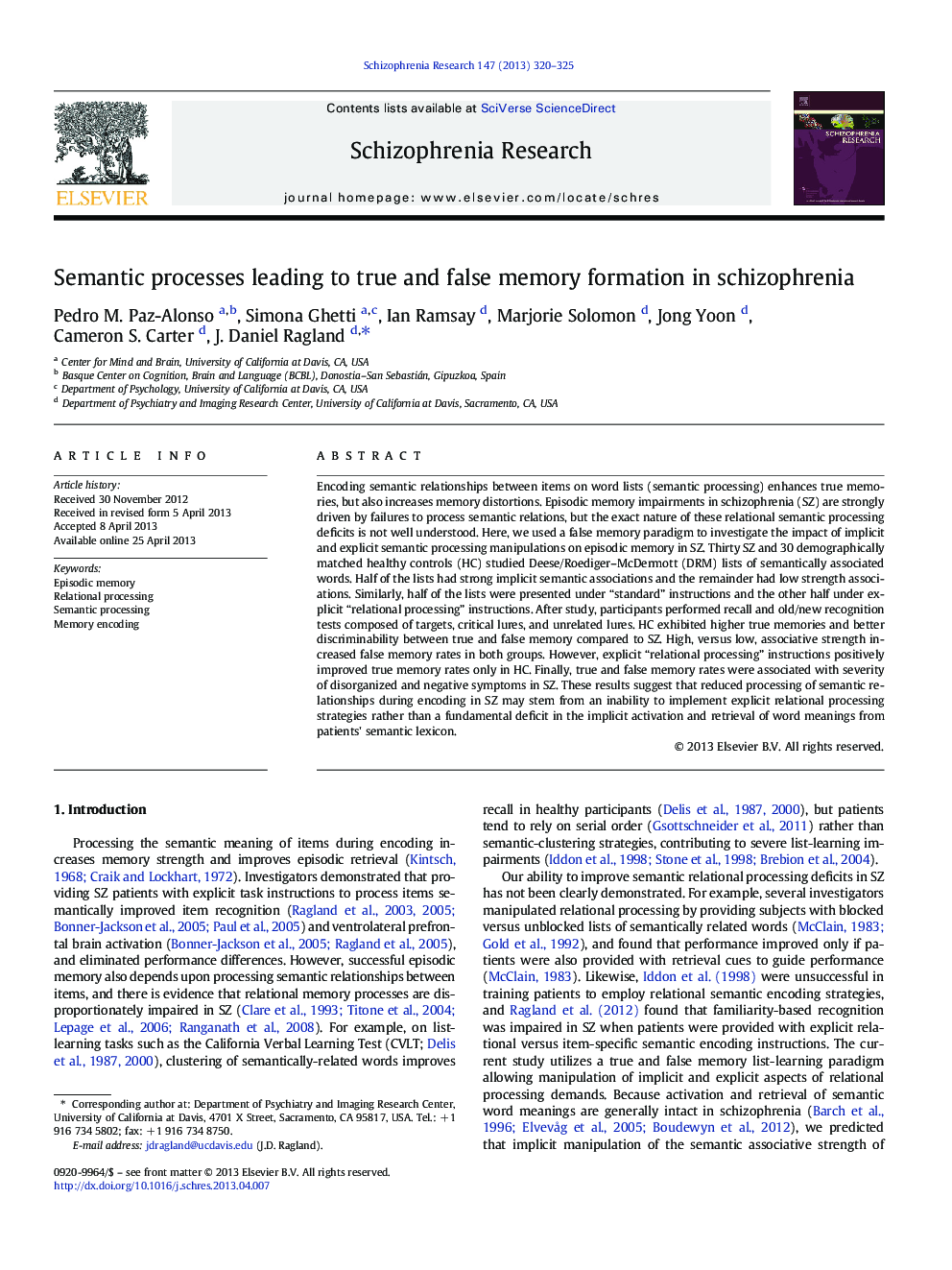| Article ID | Journal | Published Year | Pages | File Type |
|---|---|---|---|---|
| 6826145 | Schizophrenia Research | 2013 | 6 Pages |
Abstract
Encoding semantic relationships between items on word lists (semantic processing) enhances true memories, but also increases memory distortions. Episodic memory impairments in schizophrenia (SZ) are strongly driven by failures to process semantic relations, but the exact nature of these relational semantic processing deficits is not well understood. Here, we used a false memory paradigm to investigate the impact of implicit and explicit semantic processing manipulations on episodic memory in SZ. Thirty SZ and 30 demographically matched healthy controls (HC) studied Deese/Roediger-McDermott (DRM) lists of semantically associated words. Half of the lists had strong implicit semantic associations and the remainder had low strength associations. Similarly, half of the lists were presented under “standard” instructions and the other half under explicit “relational processing” instructions. After study, participants performed recall and old/new recognition tests composed of targets, critical lures, and unrelated lures. HC exhibited higher true memories and better discriminability between true and false memory compared to SZ. High, versus low, associative strength increased false memory rates in both groups. However, explicit “relational processing” instructions positively improved true memory rates only in HC. Finally, true and false memory rates were associated with severity of disorganized and negative symptoms in SZ. These results suggest that reduced processing of semantic relationships during encoding in SZ may stem from an inability to implement explicit relational processing strategies rather than a fundamental deficit in the implicit activation and retrieval of word meanings from patients' semantic lexicon.
Related Topics
Life Sciences
Neuroscience
Behavioral Neuroscience
Authors
Pedro M. Paz-Alonso, Simona Ghetti, Ian Ramsay, Marjorie Solomon, Jong Yoon, Cameron S. Carter, J. Daniel Ragland,
